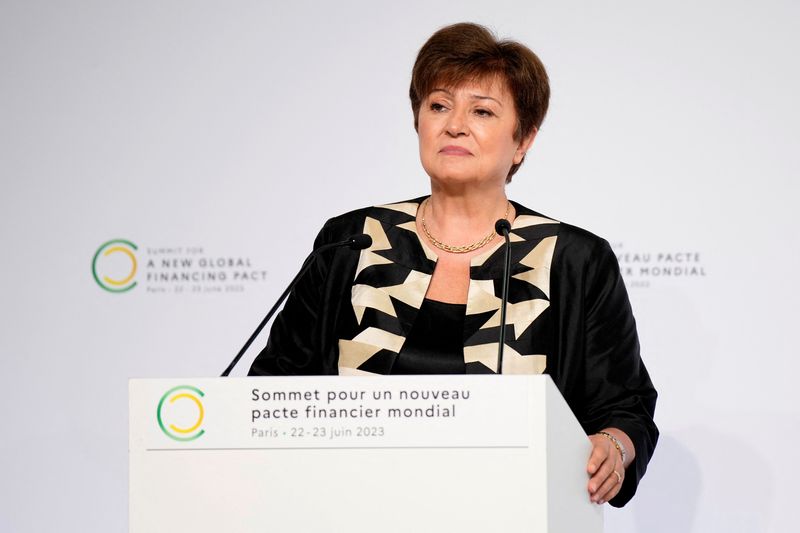IMF chief: Prospects for medium-term global growth weak
2023.07.18 08:49

© Reuters. FILE PHOTO: Kristalina Georgieva, Managing Director of the International Monetary Fund, attends a joint press conference with William Ruto, President of Kenya, French President Emmanuel Macron, U.S. Treasury Secretary Janet Yellen and World Bank President
GANDHINAGAR, India (Reuters) – Global economic activity is slowing, especially in the manufacturing sector, and medium-term growth prospects remain weak, the chief of the International Monetary Fund told financial leaders of the Group of 20 nations on Tuesday.
IMF chief Kristalina Georgieva, speaking to G20 finance ministers and central bank governors in the western Indian state of Gujarat, said divergence in countries’ economic fortunes was a persistent concern.
Inflation was finally trending downward, she said, though “headline inflation is still too high and core inflation remains sticky despite the significant monetary policy tightening.”
Still, inflation could remain higher for longer and require even more policy tightening, she warned.
“While there is progress, the job is not yet done — monetary policy must stay the course. A premature celebration can reverse the hard-won gains made so far in the disinflation process.”
Lowering inflation was a top priority for countries, Georgieva said, along with efforts like rebuilding fiscal buffers and growth-enhancing reforms.
“To support these reform efforts, the Fund will also expand its work on mobilising domestic resources, improving quality of country spending, building deep capital markets and improving the environment for private investment – both domestic and foreign,” she said.
She emphasised the need for strengthening the global financial safety net, including reviewing the IMF’s quota resources, critical for ensuring predictability of the IMF’s firepower which has shrunk in relative terms.
The IMF chief also highlighted the progress made on restoring debt sustainability following a recent agreement on Zambia’s debt restructuring.
Still, “the debt restructuring process still needs to be speedier and more effective,” she said. “The costs of delays in reaching agreement on needed debt treatments are borne acutely by borrower countries and their people, who are least able to bear this burden.”








